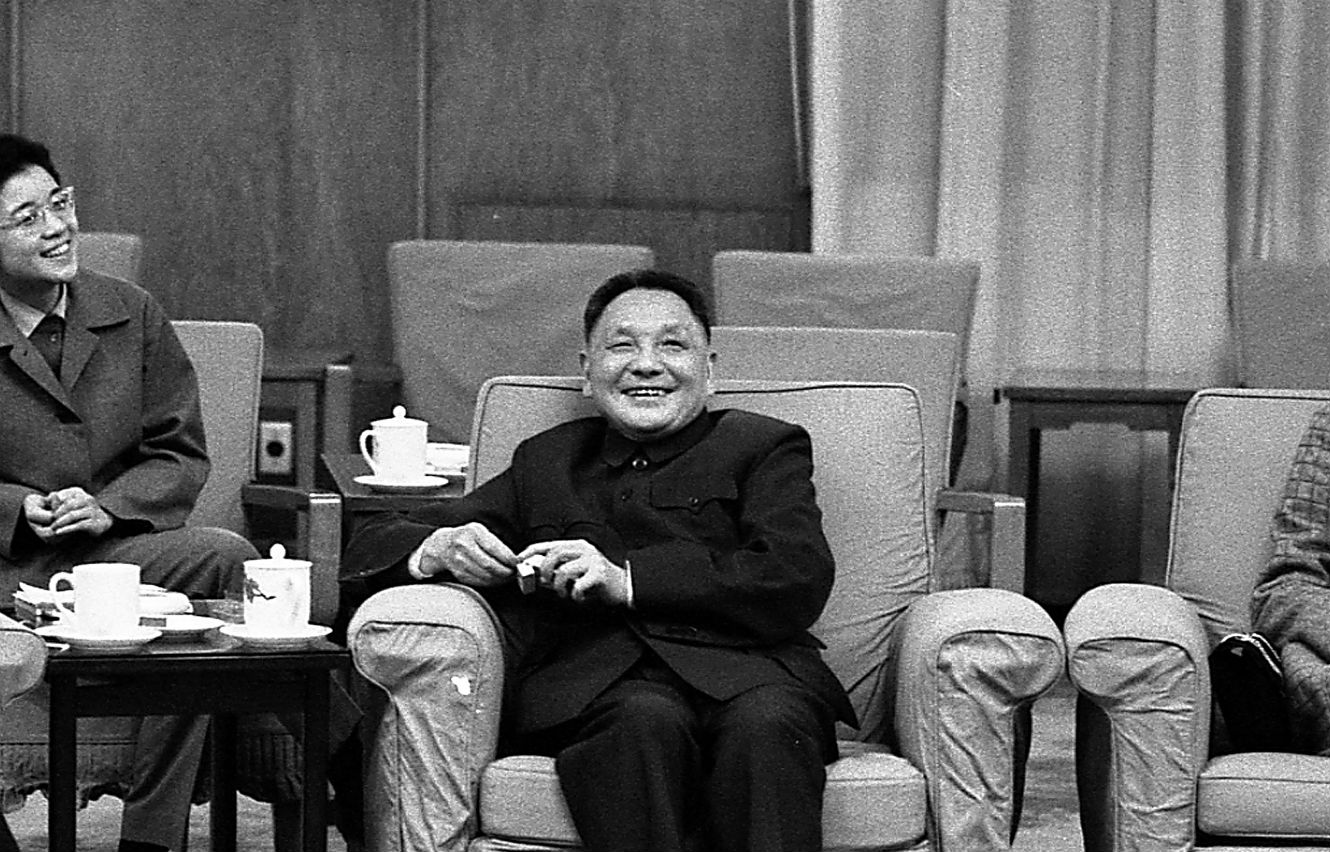Inventor of Chinese-style state capitalism: Who is Deng Hsiao-Ping?
He is one of the creators of the new policies followed in China after Mao Zedong. The name means "little peace". Deng Hsiao-Ping is the most important of the creators of the new order established in China after Mao's death.

Chinese politician and statesman. He is one of the creators of the new policies followed in China after Mao Zedong. He was born on August 22, 1904, in a village in Chungking Province in Sechvan Province. His real name is Kan Tse-Kao. After completing his secondary education, he won a scholarship and went to France. He dropped out of school and started working in a factory. He worked in the magazine Red Light, directed by Zhou En-Lai. When he joined the Chinese Communist Party (CCP) in 1925, he changed his name to Deng Hsiao-Ping (Teng Xiaoping), meaning "little peace." He went to Moscow and studied at Sun Yat-Sen University.
Deng Xiaoping (22 August 1904 – 19 February 1997) was a Chinese revolutionary leader, military commander and statesman who served as the paramount leader of the People's Republic of China (PRC) from December 1978 to November 1989. After Chinese Communist Party chairman Mao Zedong's death in 1976, Deng gradually rose to supreme power and led China through a series of far-reaching market-economy reforms earning him the reputation as the "Architect of Modern China".
Returning to China in 1926, Deng Hsiao-Ping soon rose within the party and became a political commissar in the VII Army at the age of 25. He was the editor-in-chief of the army newspaper Red Star for a while. In 1934, when the army under the command of Mao Zedong, which fought against Chiang Kai-shek, was defeated in several battles, it began to retreat towards Shensi Province, which lasted for a year. Deng was also involved in this operation, known as the "Long March" in Chinese history.
Deng, Hsiao-Ping, assisted in developing effective guerrilla methods against the Japanese armies that entered China during the Second World War, where he served as a political commissar. He was elected to the CCP Central Committee in 1945. He served as a political commissar in the Second Field Army of the People's Liberation Army of China in the war against Chiang Kai-shek's armies. Eventually, the administration fell into the hands of the CCP on October 1, 1949. Deng Hsiao-Ping, the governor of Chungking, was tasked with overseeing the party's organization in Southern China. He was summoned to Beijing in 1952. He became general secretary and finance minister of the CCP Central Committee in 1953, and vice-chairman of the national defense council and state council in 1954. He was re-elected to the CCP Politburo in 1955 and again as general secretary of the CCP Central Committee in 1956. In the same year, he was appointed to the seven-member executive committee of the Politburo.
Deng, who also participated in international meetings during this period, chaired the Chinese delegation at the Sino-Soviet conference held in Moscow in July 1963. At this conference, relations between the two countries became tense when it was announced to the world by the Chinese delegation that the USSR agreed to give China an atomic bomb and help in its construction and that the secret treaty in 1957 was abandoned in 1959.
In 1966, as a result of the power struggle between Mao Zedong and President Liu Shao-Chi, Liu Shao-Chi has declared a traitor on the grounds that he had established "independent kingdoms" against the party and the interests of the Chinese people, and he was expelled from the party and imprisoned. These management changes, which took place during Mao's Cultural Revolution, were also reflected in the pro-Liu Deng. Although he was not expelled from the party, he was removed from all his posts and given a passive post. Deng, who was not heard from for a long time, returned in 1973 with the help of Zhou En-Lai. He was elected to the CCP's Tenth Central Committee and a member of the CCP Politburo in 1974. In 1975, he became vice chairman of the Military Affairs Committee of the CCP Central Committee and chief of staff of the People's Liberation Army. Between 1975 and 1976 he was the vice president of the State Council.
The conflict between the "Gang of Four" (Chiang Qing, Chang Chunqiao, Wang Hung-ven, Yao Wen-yuan), which began to gain influence in Mao's late days, and Deng was completely exposed with the death of Zhou En-Lav, and Deng was relieved of all his duties. receipt. Hua Kuo Feng, who succeeded Mao upon his death in September 1976, captured the Gang of Four in October 1976, appointed Deng as deputy prime minister, and all other duties were reinstated. In 1977, he was elected a member of the Politburo at the CCP's Eleventh Central Committee meeting and became the CCP's deputy secretary. He was chief of staff of the People's Liberation Army from 1977 to 1980. In 1980 he decided to resign from his government post. He retained his executive role in the CCP.
Deng Hsiao-Ping is the most important of the creators of the new order established in China after Mao's death. Contrary to Mao's principle of creating a self-sufficient, closed national power, Deng aimed to create a country open to technological innovations and commercial and cultural cooperation in the world.
In China, a development plan called the "Quadruple Renewal Movement" began to be implemented. The Chinese called this innovation movement, which aims to use modern techniques in industry, agriculture, defense, and science, the "New Long March". Foreign investments were allowed in the country, foreign trade was greatly increased, the army was renewed, important changes were made in the field of education, and the domestic market was developed. Deng Hsiao-Ping was named "Man of the Year" by Time magazine in 1978 for his innovation efforts.
